 W
WThe Eli Whitney Museum, in Hamden, Connecticut, is an experimental learning workshop for students, teachers, and families. The museum's main building is located on a portion of the Eli Whitney Gun Factory site, a gun factory erected by Eli Whitney in 1798. The museum focuses on teaching experiments that are the roots of design and invention, featuring hands-on building projects and exhibits on Whitney and A. C. Gilbert.
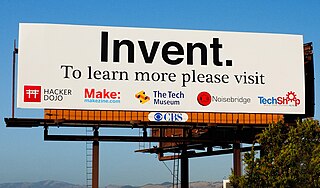 W
WThe maker culture is a contemporary subculture representing a technology-based extension of DIY culture that intersects with hacker culture and revels in the creation of new devices as well as tinkering with existing ones. The maker culture in general supports open-source hardware. Typical interests enjoyed by the maker culture include engineering-oriented pursuits such as electronics, robotics, 3-D printing, and the use of computer numeric control tools, as well as more traditional activities such as metalworking, woodworking, and, mainly, its predecessor, traditional arts and crafts. The subculture stresses a cut-and-paste approach to standardized hobbyist technologies, and encourages cookbook re-use of designs published on websites and maker-oriented publications. There is a strong focus on using and learning practical skills and applying them to reference designs. There is also growing work on equity and the maker culture.
 W
WArs Electronica Linz GmbH is an Austrian cultural, educational and scientific institute active in the field of new media art, founded in Linz in 1979. It is based at the Ars Electronica Center (AEC), which houses the Museum of the Future, in the city of Linz. Ars Electronica's activities focus on the interlinkages between art, technology and society. It runs an annual festival, and manages a multidisciplinary media arts R&D facility known as the Futurelab. It also confers the Prix Ars Electronica awards.
 W
WBattleHack was a series of global hackathon contests organised by PayPal. Competitors were required to solve a local problem by coding. Winners of the first prize of each contest got an axe as the trophy, and admission to the world finals where competitors competed for the $100,000 grand prize. Competitors retain the ownership of their applications made in the contests.
 W
WBuilding BloQs is an open workshop in Enfield, London. A social enterprise, their emphasis is on creating and maintaining space and resources for people to make a living off their craft. The model is in response to rising rental prices and gentrification in London. In 2017, it had 300 professional members, a 10,000 square foot space, and was called a "proof of concept" for a new 55,000 square foot space. That new space will be part of a 200-acre, £6B urban development project called Meridian Water. The £2.7m project will make Building BloQs the biggest Open Workshop in Europe.
 W
Wc-base e.V. is a non-profit association located in Berlin, Germany. Its purpose is to increase knowledge and skills pertaining to computer software, hardware and data networks. The association is engaged in numerous related activities. For example, the society has had stands at large festivals, such as Children's Day, where they introduce young people to topics like robotics and computer-aided design.
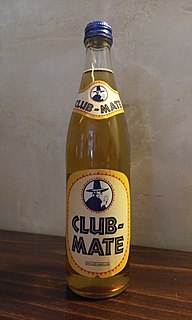 W
WClub-Mate is a caffeinated carbonated mate-extract beverage made by the Loscher Brewery near Münchsteinach, Germany, which originated in 1924. Club-Mate has 20 mg of caffeine per 100 ml. Club-Mate has a relatively low sugar content of 5 g per 100 ml, and low calories compared to other beverages such as cola or most energy drinks.
 W
WCritical Art Ensemble (CAE) is a collective of five tactical media practitioners of various specializations including computer graphics and web design, film/video, photography, text art, book art, and performance. For CAE, tactical media is situational, ephemeral, and self-terminating. It encourages the use of any media that will engage a particular socio-political context in order to create molecular interventions and semiotic shocks that collectively could diminish the rising intensity of authoritarian culture.
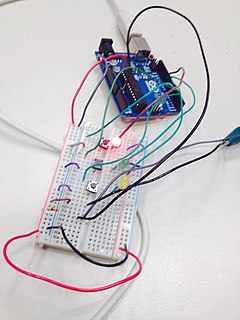 W
WCritical making refers to the hands-on productive activities that link digital technologies to society. It was invented to bridge the gap between creative, physical, and conceptual exploration. The purpose of critical making resides in the learning extracted from the process of making rather than the experience derived from the finished output. The term "critical making" was popularized by Matt Ratto, an associate professor at the University of Toronto. Ratto describes one of the main goals of critical making as a way "to use material forms of engagement with technologies to supplement and extend critical reflection and, in doing so, to reconnect our lived experiences with technologies to social and conceptual critique." "Critical making", as defined by practitioners like Matt Ratto and Stephen Hockema, "is an elision of two typically disconnected modes of engagement in the world — "critical thinking," often considered as abstract, explicit, linguistically based, internal and cognitively individualistic; and "making," typically understood as tacit, embodied, external, and community-oriented."
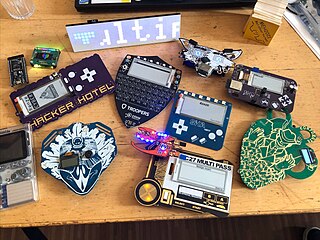 W
WAn electronic badge is a gadget that is a replacement for a traditional paper-based badge or pass issued at public events. It is mainly handed out at computer (security) conferences and hacker events. Their main feature is to display the name of the attendee, but due to their electronic nature they can include a variety of software. The badges were originally a tradition at DEF CON, but spread across different events.
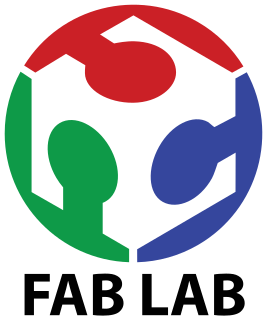 W
WA fab lab is a small-scale workshop offering (personal) digital fabrication.
 W
WThe Four Thieves Vinegar Collective is an anarchist biohacking group founded in 2015 by Michael Laufer. They have published instructions for the "EpiPencil", an epinephrine autoinjector, and the "Apothecary MicroLab", a do-it-yourself (DIY) device intended to make a variety of medications, most notably pyrimethamine (Daraprim). They have been widely criticized by the medical community for causing potential harm to patients with the DIY instructions, but Laufer claims to defend people's right to attempt their own medical treatment.
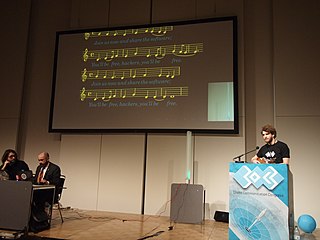 W
WThe Free Software Song is a filk song by Richard M. Stallman about free software. The song is set to the melody of the Bulgarian "Sadi Moma".
 W
WFresh Kill is a 1994 experimental film directed by Shu Lea Cheang and written by Jessica Hagedorn. It stars Sarita Choudhury and Erin McMurtry as Shareen Lightfoot and Claire Mayakovsky, two lesbian parents who are drawn into a corporate conspiracy involving the Fresh Kills Landfill. Fresh Kill was an official selection at the 1994 Berlin International Film Festival and the Toronto International Film Festival and is noted for its influence on hacker subculture, with an article about the film for the now-defunct hacker publication InfoNation containing one of the first uses of the term "hacktivism".
 W
WGlossary of Broken Dreams is a 2018 Austrian/American documentary film directed by Johannes Grenzfurthner. The essayistic feature film tries to present an overview of political concepts such as freedom, privacy, identity, resistance, etc.
 W
WGovHack is Australia's largest open government and open data hackathon, attracting in excess of 1000 participants each year. First run as a small Canberra-based event in 2009, it has quickly expanded to a national competition with simultaneous events taking place in major cities across the country each year. Available prizemoney has similarly increased, with a total prize pool of $70,000 available in 2014.
 W
WJohannes Grenzfurthner is an Austrian artist, filmmaker, writer, actor, curator, theatre director, performer and lecturer. Grenzfurthner is the founder, conceiver and artistic director of monochrom, an international art and theory group. Most of his artworks are labelled monochrom.
 W
WHack Club is a global nonprofit network of high school computer hackers, makers and coders. Founded in 2014 by Zach Latta and Jonathan Leung, it now includes nearly 400 high school clubs and 10,000 students. It has been featured on the TODAY Show, and profiled in the Wall Street Journal and many other publications.
 W
WHack Forums is an internet forum. The website ranks as the number one website in the "Hacking" category in terms of web-traffic by the analysis company Alexa Internet. The site has been widely reported as facilitating criminal activity, such as the case of Zachary Shames, who in 2013 sold a keylogger which was used to steal personal information.
 W
WHacker Culture is a cultural criticism book written by Douglas Thomas that deals with hacker ethics and hackers.
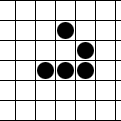 W
WThe glider is a pattern that travels across the board in Conway's Game of Life. It was first discovered by Richard K. Guy in 1970, while John Conway's group was attempting to track the evolution of the R-pentomino. Gliders are the smallest spaceships, and they travel diagonally at a speed of one cell every four generations, or . The glider is often produced from randomly generated starting configurations. John Conway remarked that he wished he hadn't called it the glider. The game was developed before the widespread use of interactive computers, and after seeing it animated, he feels the glider looks more like an ant walking across the plane.
 W
WThe Hackers Conference is an annual invitation-only gathering of designers, engineers and programmers to discuss the latest developments and innovations in the computer industry. On a daily basis, many hackers only interact virtually, and therefore rarely have face-to-face contact. The conference is a time for hackers to come together to share ideas.
 W
WHackers in Wonderland is a 2000 documentary film, produced and directed by Russell Barnes, about hackers in the United Kingdom. The documentary contains interviews with the hackers, revealing what drives them to hack, and their opinions about hacktivism.
 W
WThe Hackers on Planet Earth (HOPE) conference series is a hacker convention sponsored by the security hacker magazine 2600: The Hacker Quarterly that until 2020 was typically held at Hotel Pennsylvania, in Manhattan, New York City. Occurring biennially in the summer, there have been twelve conferences to date with the most recent occurring July 20–23, 2018. HOPE 2020, originally planned to be held at St. John's University, was instead held as a nine-day virtual event from July 25 to August 2, 2020. HOPE features talks, workshops, demonstrations, tours, and movie screenings.
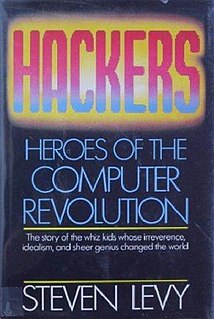 W
WHackers: Heroes of the Computer Revolution (ISBN 0-385-19195-2) is a book by Steven Levy about hacker culture. It was published in 1984 in Garden City, New York by Nerraw Manijaime/Doubleday. Levy describes the people, the machines, and the events that defined the Hacker Culture and the Hacker Ethic, from the early mainframe hackers at MIT, to the self-made hardware hackers and game hackers. Immediately following is a brief overview of the issues and ideas that are brought forward by Steven Levy's book, as well as a more detailed interpretation of each chapter of the book, mentioning some of the principal characters and events.
 W
WA hackerspace is a community-operated, often "not for profit", workspace where people with common interests, such as computers, machining, technology, science, digital art, or electronic art, can meet, socialize, and collaborate. Hackerspaces are comparable to other community-operated spaces with similar aims and mechanisms such as Fab Lab, men's sheds, and commercial "for-profit" companies.
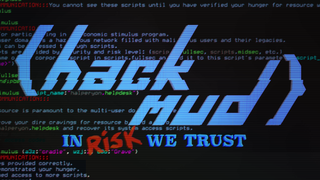 W
WHackmud is a massively multiplayer online video game and/or MUD that simulates 1990s hacker subculture through text-based adventure. Players use social engineering, scripting, and cracks in a text-based terminal to influence and control other players in the simulation. Reviewers wrote that the game's "campy hacking" mimics that of films like WarGames (1983) and Jurassic Park (1993).
 W
WHackteria is a web platform and collection of open source biological art projects instigated in February 2009 by Andy Gracie, Marc Dusseiller and Yashas Shetty, after collaboration during the Interactivos?09 Garage Science at Medialab Prado in Madrid. According to their website the aim of the project is to develop a rich wiki-based web resource for people interested in or developing projects that involve bioart, open source software/open source hardware, DIY biology, art/science collaborations and electronic experimentation.
 W
WIn Internet activism, hacktivism, or hactivism, is the use of computer-based techniques such as hacking as a form of civil disobedience to promote a political agenda or social change. With roots in hacker culture and hacker ethics, its ends are often related to free speech, human rights, or freedom of information movements.
 W
WThe Homebrew Computer Club was an early computer hobbyist group in Menlo Park, California, which met from March 1975 to December 1986. The club played an influential role in the development of the microcomputer revolution and the rise of that aspect of the Silicon Valley information technology industrial complex.
 W
WIn The Realm of the Hackers is a 2003 Australian documentary directed by Kevin Anderson about the prominent hacker community, centered in Melbourne, Australia in the late 1980s until early 1990. The storyline is centered on the Australian teenagers going by the hacker names "Electron" and "Phoenix", who were members of an elite computer hacking group called 'The Realm' and hacked into some of the most secure computer networks in the world, including those of the US Naval Research Laboratory, Lawrence Livermore National Laboratory, a government lab charged with the security of the US nuclear stockpile, and NASA. The film runs for 55 minutes and was inspired by the book Underground, by Melbourne-based writer and academic Suelette Dreyfus.
 W
WThe Innovators: How a Group of Hackers, Geniuses, and Geeks Created the Digital Revolution is an overview of the history of computer science and the Digital Revolution. It was written by Walter Isaacson, and published in 2014 by Simon & Schuster.
 W
WJe Suis Auto is an upcoming Austrian social science fiction indie comedy film directed by Johannes Grenzfurthner and Juliana Neuhuber. Chase Masterson is voicing the title character "Auto", a self-driving taxi, and Johannes Grenzfurthner plays Herbie Fuchsel, an unemployed nerd critical of artificial intelligence. The film is a farcical comedy that deals with issues such as artificial intelligence, politics of labor, and tech culture.
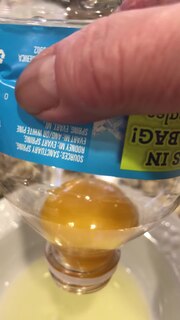 W
WA kitchen hack, also known as a food hack, is a technique used by home cooks and professionals to make food preparation tasks easier, faster, or more efficient. It may also be called a food hack, and is a type of life hack, although the concept of a kitchen hack predates the coinage of either term. Multiple kitchen hacks posted to social media have become popular, and some have been shown not to work, not to be worth the effort, or to be dangerous.
 W
WJaron Zepel Lanier is an American computer philosophy writer, computer scientist, visual artist, and composer of contemporary classical music. Considered a founder of the field of virtual reality, Lanier and Thomas G. Zimmerman left Atari in 1985 to found VPL Research, Inc., the first company to sell VR goggles and Wired Glove. In the late 1990s, Lanier worked on applications for Internet2, and in the 2000s, he was a visiting scholar at Silicon Graphics and various universities. In 2006 he began to work at Microsoft, and from 2009 has worked at Microsoft Research as an Interdisciplinary Scientist.
 W
WA life hack is any trick, shortcut, skill, or novelty method that increases productivity and efficiency, in all walks of life. The term was primarily used by computer experts who suffer from information overload or those with a playful curiosity in the ways they can accelerate their workflow in ways other than programming.
 W
WLock picking is the practice of unlocking a lock by manipulating the components of the lock device without the original key.
 W
WThe Medialab-Prado, sometimes abbreviated MLP, is a cultural space and citizen lab in Madrid (Spain). It was created by the Madrid City Council in 2000, growing since then into a leading center for citizen innovation. It follows a participatory approach, using collective intelligence methods and fast prototyping tools such as fab labs, to use and co-create digital commons.
 W
WThe Metalab is a hackerspace in Vienna's central first district. Founded in 2006, it is a meeting place of the Viennese tech community, hosting events from culture festivals to user groups. It has played a catalyst role in the global hackerspace movement and was the birthplace of several internet startup companies.
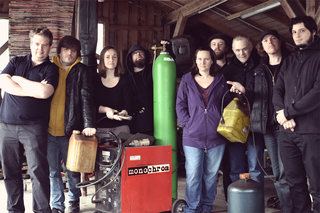 W
Wmonochrom is an international art-technology-philosophy group, publishing house and film production company. monochrom was founded in 1993, and defines itself as "an unpeculiar mixture of proto-aesthetic fringe work, pop attitude, subcultural science and political activism". Its main office is located at Museumsquartier/Vienna.
 W
WMusic Tech Fest (MTF) is an arts festival and creative innovation lab founded in London by Michela Magas in 2012. It began as a 3-day festival where participants from different disciplines gathered to collaborate, invent and showcase new formats and platforms for musical performance and expression, and later diversified and evolved into a series of 5-day experimental labs that place creativity and music at the centre of interdisciplinary and cross-sector innovation. It is now a Swedish company, MTF Labs AB.
 W
WOver the Air was an annual mobile technology-focused overnight hack day event held in London from 2008 to 2016. The two-day event would include practical and educational talks and a hacking competition. Sponsors of the event have included the BBC, Bluevia, Nokia, PayPal, and Vodafone. Some of the ideas developed at Over the Air have been turned into commercial services.
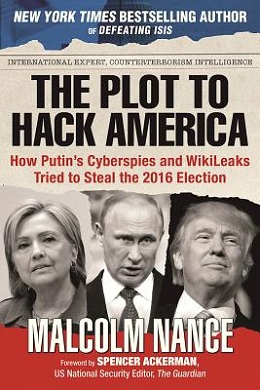 W
WThe Plot to Hack America: How Putin's Cyberspies and WikiLeaks Tried to Steal the 2016 Election is a non-fiction book by Malcolm Nance about what the author describes as Russian interference in the 2016 United States elections. It was published in paperback, audiobook, and e-book formats in 2016 by Skyhorse Publishing. A second edition was also published the same year, and a third edition in 2017. Nance researched Russian intelligence, working as a Russian interpreter and studying KGB history.
 W
WThe Recurse Center is an independent educational institution, combining a retreat for computer programmers with a recruiting agency. The retreat is an intentional community, a self-directed academic environment for programmers of all levels to improve their skills in, without charge. There is no curriculum and no particular programming languages or paradigms are institutionally favored; instead, participants work on open-source projects of their own choice, alone or collaboratively, as they see best. The Center has been an active advocate for women in programming.
 W
WEvan Roth is a US artist who applies a hacker philosophy to an art practice that visualizes transient moments in public space, online and in popular culture.
 W
WSAPO Codebits, also known simply as Codebits, was a (computing) conference held in Lisbon from 2007 to 2014. It was organized by SAPO which, besides a news media brand, was also an internet-focused R&D division of Portugal Telecom at the time.
 W
WJason Scott Sadofsky, more commonly known as Jason Scott, is an American archivist, historian of technology, filmmaker, performer, and actor. Scott has been known by the online pseudonyms Sketch, SketchCow, The Slipped Disk, and textfiles. He has been called "figurehead of the digital archiving world".
 W
WTraceroute is a 2016 Austrian/American documentary film directed by Johannes Grenzfurthner. The autobiographical documentary and road movie deals with the history, politics and impact of nerd culture. Grenzfurthner calls his film a "personal journey into the uncharted depths of nerd culture, a realm full of dangers, creatures and more or less precarious working conditions", an attempt to "chase the ghosts of nerddom's past, present and future." The film was co-produced by art group monochrom and Reisenbauer Film. It features music by Kasson Crooker, Hans Nieswandt, and many others.
 W
WUBERMORGEN.COM is a Swiss-Austrian-American artist duo founded in 1995 and consisting of lizvlx and Hans Bernhard. They live and work in Vienna, Basel and S-chanf near St. Moritz in the alpine Engadina valley in Switzerland.
 W
WUnderground: Tales of Hacking, Madness and Obsession on the Electronic Frontier is a 1997 book by Suelette Dreyfus, researched by Julian Assange. It describes the exploits of a group of Australian, American, and British black hat hackers during the late 1980s and early 1990s, among them Assange himself.Craig Bowen (nickname), administrator of two important Australian BBS Par, a.k.a. The Parmaster, an American hacker who avoided capture by the United States Secret Service from July 1989 to November 1991 Phoenix, Electron and Nom, who were convicted in the first major Australian trial for computer crimes Pad and Gandalf, the British founders of the notorious 8lgm group the Australian Mendax and Prime Suspect, who managed to penetrate the DDN, NIC and the Nortel internal network, and the phreaker Trax. Together, the three were known as the "International Subversives". Anthrax, another Australian hacker and phreaker
 W
WThe Warez scene, often referred to as The Scene, is an underground community of people that specialize in the distribution of "warez": copyrighted material, including television shows and series, movies, music, music videos, games, applications, ebooks, and pornography. The Scene is meant to be hidden from the public, only being shared with those within the community. However, as files were commonly leaked outside the community and their popularity grew, some individuals from The Scene began leaking files and uploading them to filehosts, torrents and ed2k.
 W
WNaomi Wu, also known as Sexy Cyborg, is a Chinese DIY maker and internet personality. As an advocate of women in STEM, transhumanism, open source hardware, and body modification, she attempts to challenge gender and tech stereotypes with a flamboyant public persona, using objectification of her appearance to inspire women.
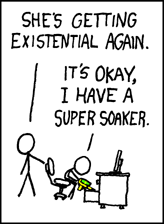 W
Wxkcd, sometimes styled XKCD, is a webcomic created in 2005 by American author Randall Munroe. The comic's tagline describes it as "A webcomic of romance, sarcasm, math, and language". Munroe states on the comic's website that the name of the comic is not an initialism but "just a word with no phonetic pronunciation".